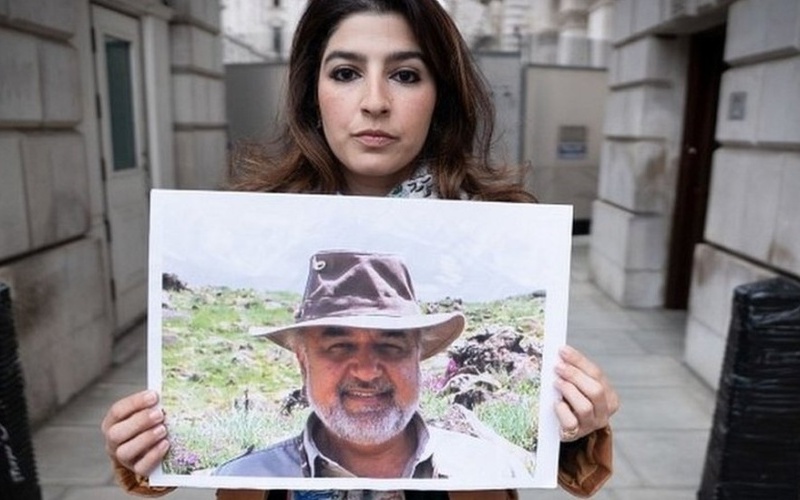Roxanne Tahbaz holds a photo of her father Morad, an environmentalist imprisoned in Iran since January 2018 (PA)
I joined Al Jazeera English’s Inside Story on Saturday to discuss the news that Iran could soon release five US-Iranian political prisoners.
Officials said earlier this week that the Americans are out of prison and in houses in Tehran. They are being swapped for the unfreezing of $6 billion in Tehran’s foreign assets — to be used for humanitarian items such as food and medicines — and the freeing of Iranians held in American prisons over sanctions violations.
See also Iran to Release 5 US-Iranian Political Prisoners
Journalist and political analyst Negar Mortazavi and I discuss the details of the exchange, its effect on talks over American sanctions and Iran’s nuclear program, and the direction of the Biden Administration’s foreign policy.
The Biden Administration doesn’t want the talks about Iran’s nuclear programs to stagnate and fade away, because you have the risk of confrontation not just over Iran but over the region.
This is a de-escalation step not to get a deal soon but at least to re-open the talks.
From the Iranian side, the motive is the economic crisis.
Foad Izadi from Tehran University is on hand to give the Iranian regime’s talking points —- but when he attempts to smear the American political prisoners, I have a few words in reply.
As analysts, we have to be respectful and not try diversions with these people held as political prisoners.
You don’t use events from 70 years ago to take innocent people and throw them into detention for years.
Iran has never produced any evidence in public against Siamak Namazi. Iran has never produced any evidence against Morad Tahbaz or against Emad Sharghi. Iran has never produced evidence against other foreign nationals still being held in Iranian prisons.


The Central Bank governor confirms that Iranian bank accounts in Qatar will control the funds: https://www.presstv.ir/Detail/2023/08/12/708825/Iran-unblocked-funds-CBI-governor-statement
Iran had lost 1 billion of the original 7bn held because of the devaluation of the won.